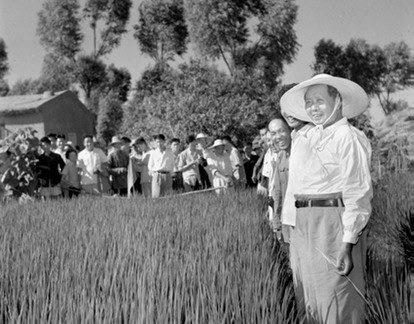Publishers Weekly, August 2010
Taking advantage of newly opened Party archives, Dikötter, a University of London historian who has specialized in modern China, presents a bleak, gruesomely detailed account of perhaps history's worst famine. A decade after assuming power, Mao launched the Great Leap Forward, designed to quickly develop his impoverished nation, substituting mass action for planning and investment. A catastrophe followed. Forests were destroyed to feed 500,000 backyard blast furnaces that produced expensive but poor quality iron. Under miserable conditions, factory workers fulfilled hopelessly optimistic quotas with shoddy goods. Coerced into communes, millions of subsistence farmers neglected their fields to labor on poorly planned dams or irrigation projects; others demolished houses and barns to use as fertilizer. Falsifying figures, local officials proclaimed vast increases in food production. Shipping off the usual fraction of actual production for urban provisions and exports left little behind, so peasants starved; more than 40 million Chinese died. This is not a historical overview but an intensively researched litany of suffering, packed with statistics, grim anecdotes, and self-serving explanations by leaders responsible for the devastation. 8 pages of b&w photos.

